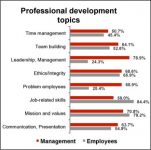OSHA Recordkeeping and Reporting Requirements
OSHA Recordkeeping and Reporting Requirements As most employers are well aware, OSHA stands for the Occupational Safety and Health Administration. In general, OSHA regulations require that employers maintain a workplace that is free of recognized safety hazards and do not discriminate or retaliate against anyone who reports injuries or illnesses.







